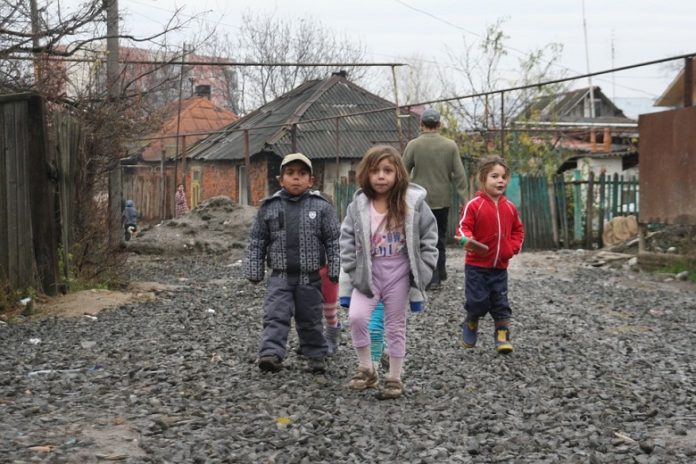By the end of 2017 there was an explosion of newspaper articles related to the Roma crime and inappropriate use of social welfare payments in the area of Međimurje County. Some social care users were seen in the casino, a topic that even made it to the “Provjereno” TV show. The local authorities reacted by holding a special meeting in January 2018, where they announced stricter control of spending social welfare payments and the establishment of a special police for the Roma. Of course, instead of mitigating the situation, the County and the media saw this as an opportunity to take advantage of the Roma as a scapegoat for their political points. In most media interviews, County Prefect Matija Posavec unfortunately used the old expression “The Roma enjoy their rights, so they should respect their responsibilities as well”. As if there was not enough intolerance already, this rhetoric was an additional incentive for more ethnic hatred and portraying the Roma as a burden to the citizens of Međimurje and Croatia.
But is Croatia a country of equal rights and opportunities for all people and do the Roma really enjoy their rights at all?
On paper, the Roma are equal and should enjoy the same rights and opportunities as all other citizens of the Republic of Croatia. But the problem is that in practice, society and government always find ways to limit the rights of minorities. According to the latest EU Minorities and Discrimination Survey, conducted in 2016, the Roma still have a long road to equality in Croatia. The root of many of the problems and inequality experienced by the Roma is discrimination. On paper, Roma children should have the right to quality education in mixed schools. In reality, Croatian parents protest and block entry to prevent the Roma from entering into “their” schools and take their children out of school in the places where the Roma live. Eight years after the European verdict against Croatia which should end the segregation of non-Roma from the Roma in education, 40% of the Roma still attend ethnically segregated schools where all or most of their colleagues are Roma, and their curriculum is often limited. On paper, the Roma should have the same rights to employment, but about 50% of the Roma said they experienced discrimination when seeking employment. Only 21% of the Roma in Croatia could provide jobs, while among Croats this number is about 61%. On paper, the Roma should have equal rights to housing. Instead, they have been forced to live on the outskirts in settlements with poor infrastructure, far from the eyes of Croats. Every third Roma lives in areas that are polluted or environmentally hazardous. Approximately 41% of households do not have bathrooms, showers or adequate water access. When they asked for housing outside these settlements, 53% of the Roma experienced discrimination. About 32% of the Roma have experienced discrimination in other public services such as public transport, hospitals or even the social welfare centre. The police whose responsibility is to serve and protect all citizens, ethnically profiles Roma and is trying to increase the control over the Roma, which is illegal. They also often use brutal and unnecessary force in interaction with the Roma, which is also illegal. Given all this, it is not surprising that 93% of the Roma in Croatia live below the national poverty threshold and have difficulties with integration.
Too many rights?
The Roma are obviously lacking rights and protections, sometimes even by public bodies themselves, which should serve them as help. They are deprived of many basic rights that are publicly presented as privileges. The right to social welfare is slowly becoming a privilege. Owning a car is a privilege and many Roma families have already had to consign their vehicle and lose the right to spatial mobility. Soon the possession of cell phones and the Internet will be a privilege, as well as having a bathroom, a warm house during winter, clean and fresh water or a better pair of shoes. It is easier for the Government and the public to justify the Roma need for social assistance only if they see that they really live in the extreme poverty of the pre-industrial period. When the Roma begin to strive for something bigger and when they start using this same assistance to increase their own living standards, the majority population begins to complain that the Roma have too much and that they are exploiting the system.
I do not claim that all Roma are impeccable. Especially not those who spend money casually in casinos or on booze. However, the system has also failed those individuals. Gambling, for example, is basically the same as alcohol, drugs or cigarettes – a type of addiction that ironically attracts people who are already at the bottom due to poverty, depression or social isolation. These individuals are addicts and should be helped in order to rehabilitate and educate themselves on the negative impact of their addiction. The Roma involved in criminal acts are most likely also individuals who have been forced to survive in extremely adverse living conditions. Collective punishment and stigmatisation of all Roma for mistakes done by some of them will not bring any benefit. Especially if such punishment deprives them of their rights, dignity and opportunities for development. Each individual needs to be treated individually without stigmatisation and lynch. Additionally, media and political leaders should focus on advocating basic human rights without inciting hatred. In the meantime, everyone should become aware that in today’s Croatia, the Roma are in no way privileged and do not even enjoy the same rights as others. As long as the Roma do not have the same rights in both paper and practice, Croatia is not a country of equal opportunities for everyone.












